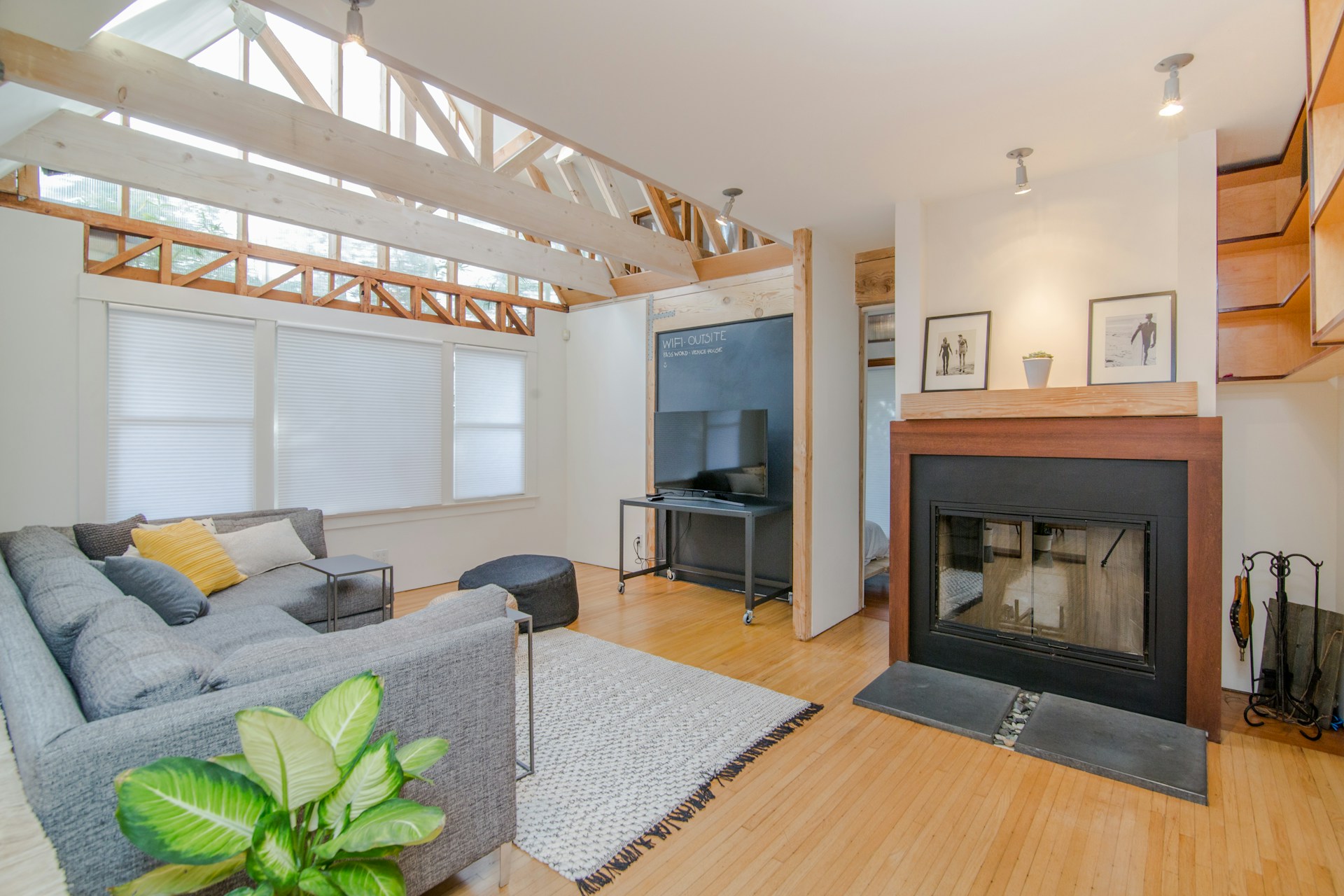Live in Bali: Advantages and disadvantages
Welcome to the most famous island of Indonesia! We tell you everything you need to know to live in Bali as a foreigner.
In recent years, many foreigners, including a growing community of digital nomads, have chosen to live in Bali. This idyllic Indonesian island is the perfect place to enjoy lush nature, vibrant culture, ancient temples, rice fields, beautiful beaches, and a tropical climate.
What makes it even more appealing is how affordable life is compared to many other countries, allowing for a more relaxed and comfortable way of living. In this article, we take a closer look at what makes this island a strong candidate for your next home: education, healthcare, economy, income, and digital infrastructure.
Quality of life in Bali
Dreaming about living in Bali? Now’s the time to turn that dream into reality and see what life on this Indonesian island is all about. If you’re still gathering information before making the leap, we’ve put together everything you need to know. Keep reading!
Education in Bali
When it comes to education, Bali offers a range of options for international students, including well-regarded universities and higher education institutions. Most of them offer programs in English and opportunities for exchange with other universities abroad. Some of the most popular ones include:
- Udayana University (Universitas Udayana): Largest university of the island with studies in medicine, engineering, humanities and tourism, among other programs.
- Institut Seni Indonesia Denpasar (ISI Denpasar): Education of Balinese arts like dance, music and culture.
- Warmadewa University: Private center where you can study law, business, communication and tourism.
Tuition fees in Bali are significantly lower compared to Europe or the United States. At a public institution, you can expect to pay between $1,000 and $3,000 per year. There are also scholarship opportunities available, such as the Darmasiswa Scholarship.
Health system in Bali
If you’re planning to live in Bali, it’s important to understand how the healthcare system works and how foreigners can access it. According to the Global Health Security Index (2021), Indonesia ranks 46th worldwide in healthcare preparedness, and Bali stands out as being above the national average.
Private hospitals in Bali provide good care for minor emergencies and everyday health issues, with popular options like BIMC Hospital in Kuta and Nusa Dua, Siloam, and Kasih Ibu. For more serious procedures or surgeries, many expats prefer to seek treatment at top hospitals in Jakarta or Singapore. If you’re a foreigner looking to use public healthcare, here’s what you need to know:
- Foreigners with temporary (KITAS) or permanent (KITAP) visas: They can access public healthcare by enrolling in the national health insurance program, BPJS Kesehatan.
- Foreigners with short-stay visas: Digital nomads, students, and tourists are required to have private health insurance in Bali since they aren’t eligible for BPJS coverage.

Security in Bali
Bali is one of the safest places to live in Southeast Asia, so you can enjoy peace of mind while you’re there. According to the 2024 Numbeo Safety Index, it scores a 66 in safety. The biggest risks tend to be pickpocketing and scams in popular tourist areas like Kuta and Seminyak, so it’s a good idea to stay alert with your belongings.
You should also be extra careful whether you’re riding a motorcycle or walking around, as traffic can be quite chaotic and accidents happen often.
Economy and salaries in Bali
One of the first things you’ll notice is how much cheaper everything is compared to Western countries. A 2024 study by Expatistan found that life on the island is 56% cheaper than in Madrid or 63% cheaper than in New York. However, wages for local workers are much lower, with minimum pay around $180 a month. That’s why most foreigners working here do so remotely, often as digital nomads for companies abroad.

Connectivity in Bali
Internet quality in Bali has improved significantly in recent years, largely due to the influx of digital nomads who rely on strong connections for remote work. The main providers on the island are Telkomsel, XL Axiata, and Indosat Ooredoo, offering 4G coverage in urban and tourist areas. Average speeds in popular spots like Canggu and Ubud range between 30 and 50 Mbps. These areas are also home to most of Bali’s coliving spaces, which feature coworking areas and high-speed internet.
If you’re heading to more remote parts of the island or traveling to other destinations without wanting to switch SIM cards, Holafly’s monthly plans are a great solution. You’ll get 5G coverage and unlimited data right from day one, plus the ability to connect two devices at once — all for $64.90 a month.
Important: If you are a frequent traveler and want to stay connected without worrying about expensive roaming or looking for a new SIM at every destination, Holafly’s subscription plans are for you. With a single eSIM, enjoy internet in more than 170 countries for a fixed price and no surprises on your bill. Travel without limits and connect easily and securely! 🚀🌍

Advantages of living in Bali
Living in Bali offers many benefits, especially the low cost of living that lets you enjoy a comfortable lifestyle, particularly if you earn money from clients overseas. Here’s a look at some of the key benefits:
- Affordable living: You can rent a villa with a private pool from $500 per month and afford to eat every day in local restaurants at low prices.
- Tropical climate all the year round: With average temperatures ranging from 26 to 31 °C, outdoor activities like surfing, yoga, hiking, and diving are very popular in Bali.
- International community: There is a great community of nomads in the zones of Canggu, Ubud and Seminyak, with frequent networking events.
- Culture and nature: Balinese culture is captivating, filled with majestic temples, traditional dances, and vibrant festivals. All surrounded by stunning beaches, volcanoes, and dense forests.
- Services: You’ll find all the essential services you need, including quality international restaurants, schools, supermarkets, and hospitals.

Disadvantages of living in Bali as a foreigner
Although living in Bali comes with many perks, there are also some drawbacks you should know about. It’s important to have all the facts before deciding to make the island your home. Here are the biggest challenges to keep in mind:
- Traffic and chaotic transport: Traffic on the island can be heavy and quite chaotic. Local drivers often don’t follow the rules, so accidents happen frequently. Public transportation is nearly non-existent, which is why most people rent motorcycles to get around Bali.
- Air and waste: Waste management on the island isn’t as developed as in other countries, which impacts air quality due to pollution.
- Administrative difficulty: Visas are a little more difficult to process and require frequent renewals, so these procedures can be somewhat tedious.
- Limited health system: While there are quality private hospitals in Bali, many foreigners choose to travel to nearby countries like Singapore or Australia for more advanced medical care in serious health situations.
- Limited infrastructure: In less popular areas, roads tend to be in poorer condition, and access to electricity and water can be unreliable, especially since flooding during the rainy season is quite common.
Frequently asked questions about living in Bali
It’s not essential since English is widely spoken in the main tourist areas. Still, picking up a few basic phrases in the local language can help you connect more deeply with the culture.
If you plan to stay in Bali for an extended period, you’ll need a temporary residence visa (KITAS), a permanent residence permit (KITAP), or, for digital nomads, the Bali Digital Nomad visa, which allows you to live in the country for up to five years.
Living in Bali is generally safe, with low rates of violent crime. Some of the best places to live in Bali for a peaceful lifestyle are Sanur, Ubud, Canggu, and Nusa Dua.
If you want to live in Bali with a comfortable lifestyle, you can spend between $900 and $1,500 per month on accommodation, food, leisure and transportation.
Yes, in areas like Canggu, Ubud, Sanur, and Seminyak, you’ll find plenty of long-term housing options, including private apartments, villas, and coliving spaces. Lease agreements can be arranged monthly or yearly, depending on what works best for you.
Motorcycles are the most popular and efficient way to get around the island, especially since traffic can get heavy in certain areas. You’ll find plenty of places to rent bikes, but as a foreigner, you’ll need either an international driving license or a temporary Indonesian permit that lasts for a year.





 Language
Language 


















 No results found
No results found







